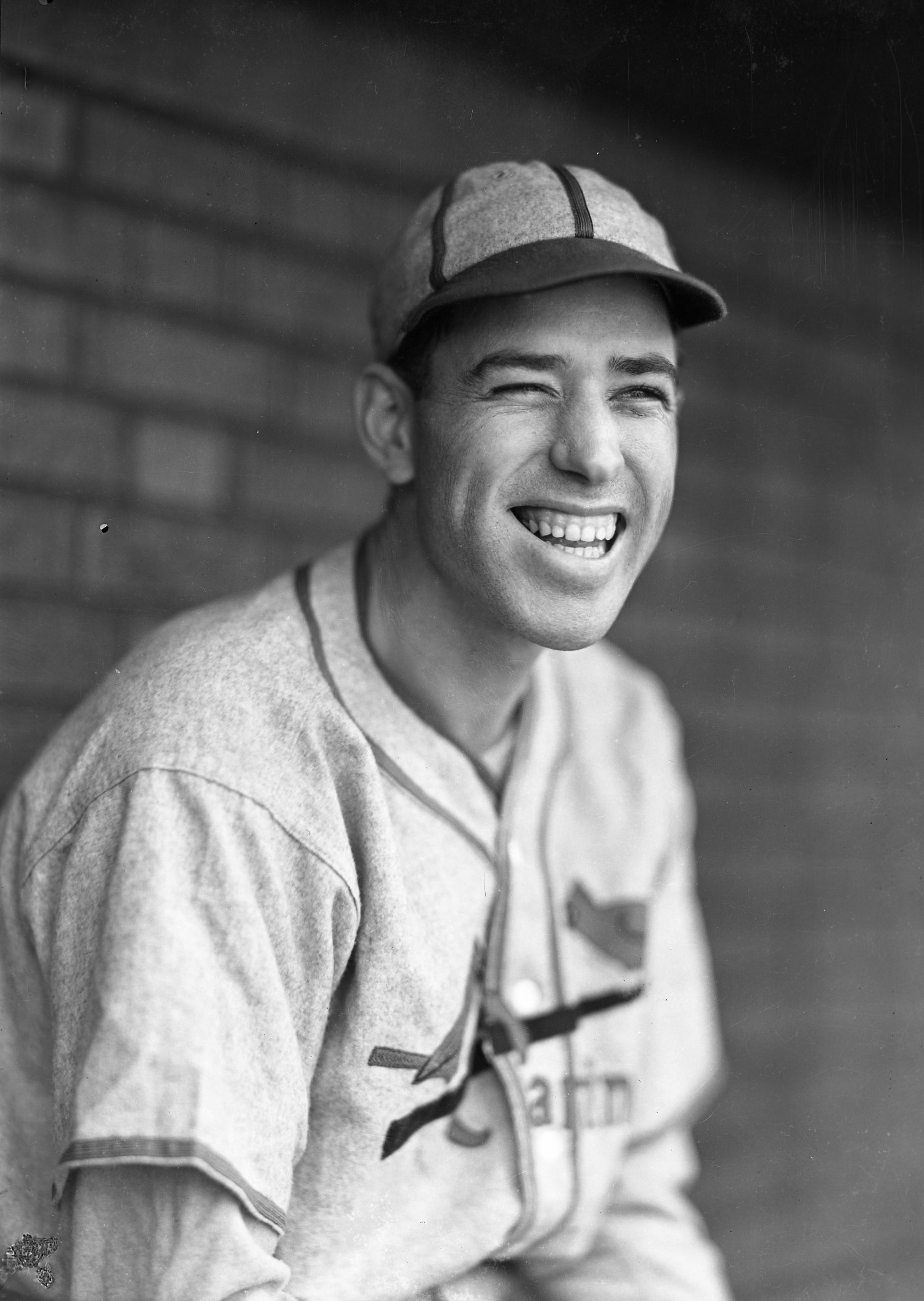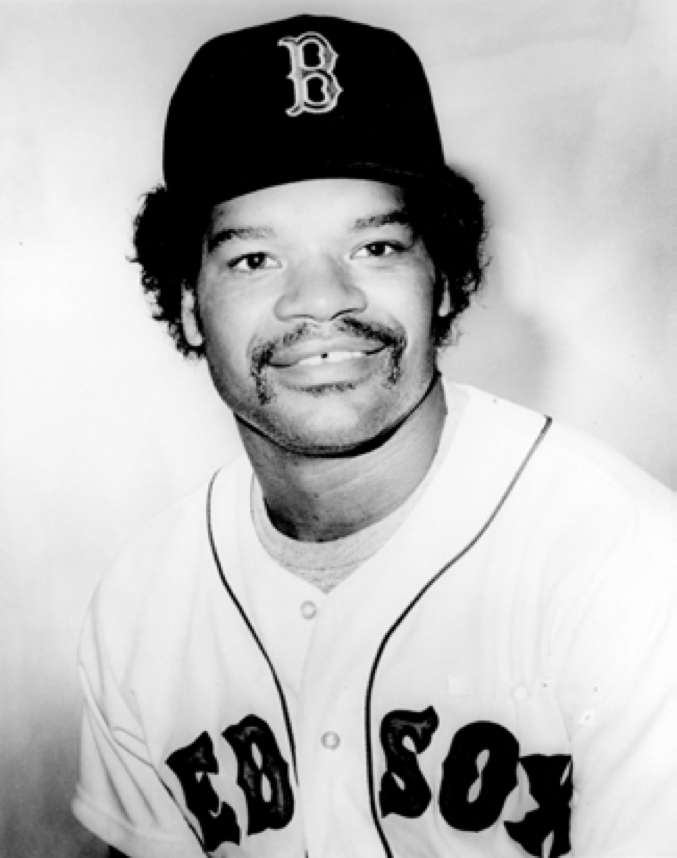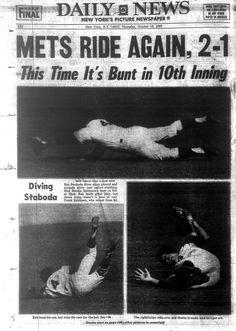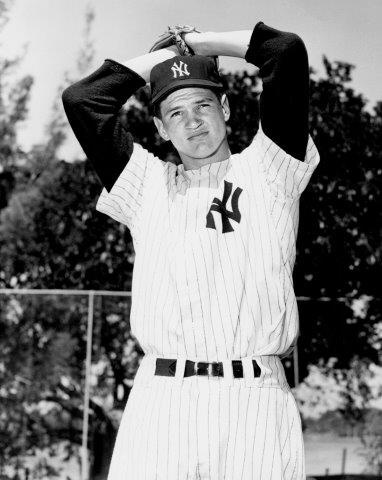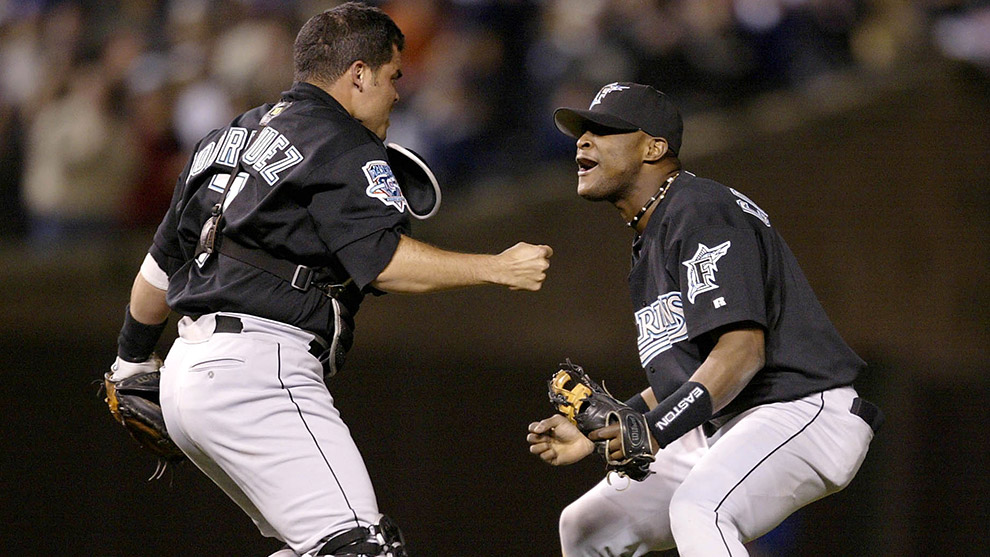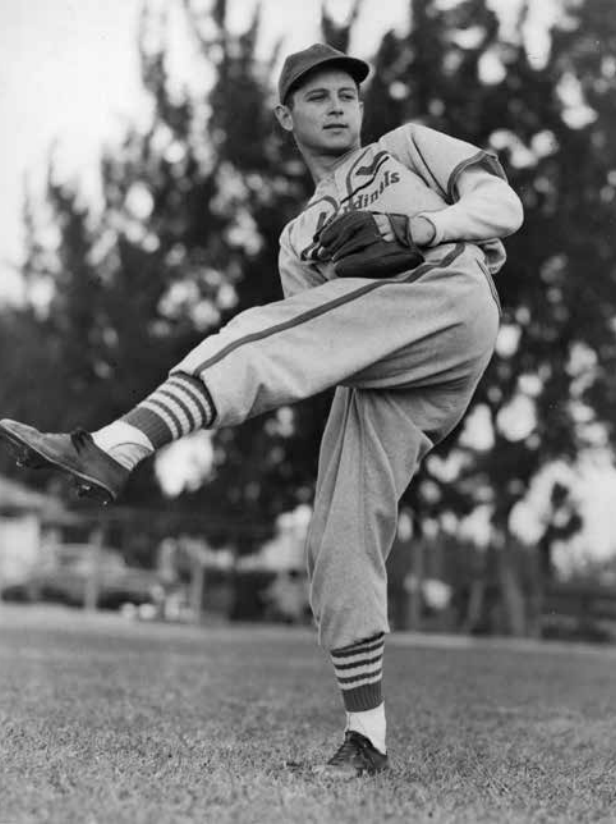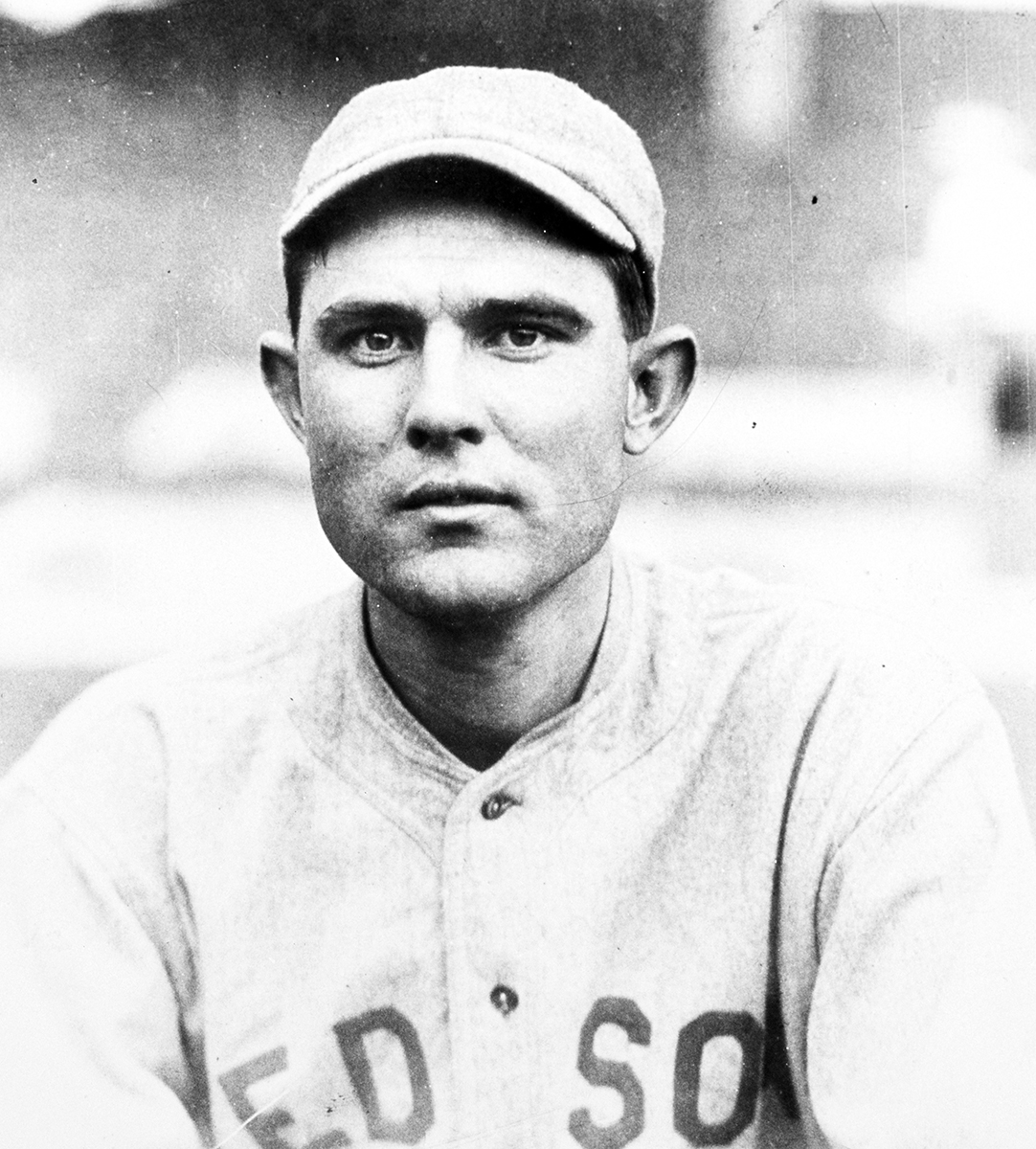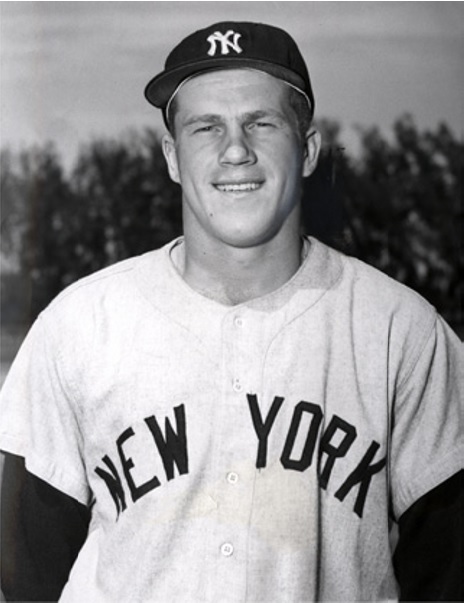October 31, 2001: Jeter becomes Mr. November
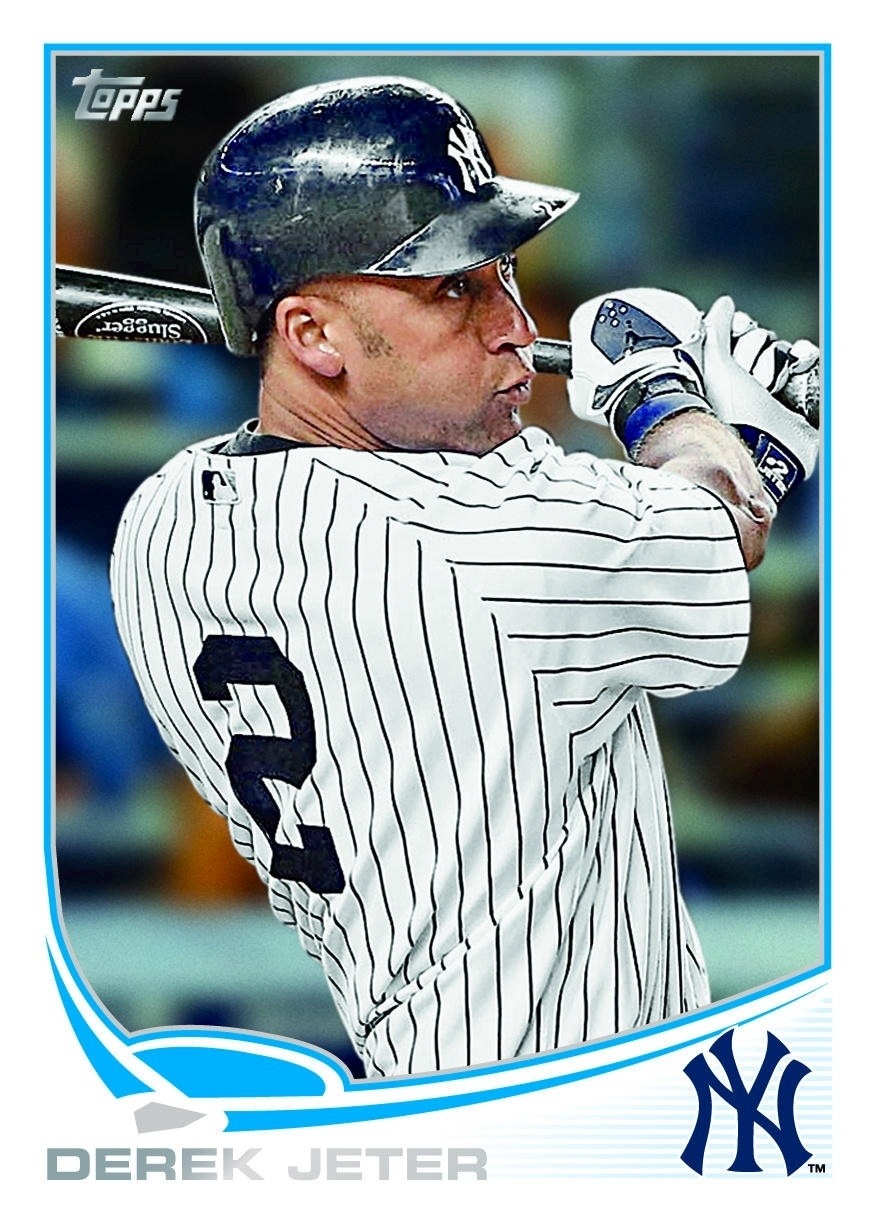 On Halloween night, the New York Yankees stared at a hole they didn’t dare fall into. Few teams have battled back from a three-games-to-one deficit to win the World Series. And of those that did, none ever had to do it against a team with starters as hot as the Arizona Diamondbacks’ Curt Schilling and Randy Johnson.
On Halloween night, the New York Yankees stared at a hole they didn’t dare fall into. Few teams have battled back from a three-games-to-one deficit to win the World Series. And of those that did, none ever had to do it against a team with starters as hot as the Arizona Diamondbacks’ Curt Schilling and Randy Johnson.
That was the situation the New York Yankees faced yet desperately wanted to avoid late in the fourth game of the 2001 World Series. But Tino Martinez kept them from falling, and an inning later Derek Jeter earned a moniker never before possible in major-league baseball. The result was a 4-3 New York win and a deadlock in the World Series.
The Yankees avoided total disaster in the previous game, winning behind the pitching of Roger Clemens and Mariano Rivera after having dropped the first two in Arizona. To hang onto any reasonable chance of winning the World Series, though, the Yankees would have to find a way to get by Schilling in the fourth game. New York sent Orlando Hernandez to the mound. El Duque had once been Señor Octubre, having won his first eight postseason decisions with the Yankees, starting in 1998. But Hernandez struggled through the 2001 season, in part because he was hampered by injuries, and the pitching matchup in this game favored Arizona, even though Schilling was starting on only three days’ rest for the first time in his career.
New York manager Joe Torre shuffled his lineup, hoping to find a combination to generate some offense, although he admitted that he didn’t know the answer to his team’s hitting woes. “I wish I could put my finger on it, and maybe I could fix it. I’m just fiddling with it to see if we can stimulate some offense here.” Chuck Knoblauch was dropped from the lineup, replaced by David Justice, with Jeter taking Knoblauch’s leadoff spot in the batting order. “The one thing that Knobby has been doing, he’s hitting a lot of balls in the air, and that’s not a good sign for someone who relies on his speed and is normally a line-drive guy.”1
Neither the lineup tinkering nor Schilling being a day short on rest seemed to help the Yankee hitters. Schilling retired the first six batters he faced. Shane Spencer looped a home run into the right-field corner leading off the third, but Schilling came back by retiring the next nine hitters.
Meanwhile, Hernandez worked his way into and out of trouble. Arizona loaded the bases on a single, walk, and hit batter with one out in the first. But Hernandez struck out Matt Williams, who came into the game with five runs batted in during the Series, and got Steve Finley to pop out to end the inning. After retiring the Diamondbacks in order in the second, El Duque walked two more in the third but retired Erubiel Durazo and Williams to get out of the inning. A leadoff single in the fourth was followed by a double play, and it looked as though Hernandez would produce another scoreless inning. But Mark Grace, on a 3-and-1 count, delivered a home run into the upper deck in right to tie the game, 1-1.
Arizona threatened to take the lead in the fifth when Tony Womack led off with a double and went to third on Craig Counsell’s third sacrifice of the game. Luis Gonzalez, quiet since a two-run homer in the opening game of the Series, lifted a fly to Spencer in left. Womack tagged and tried to score on the play, but Jorge Posada fielded Spencer’s throw, which was off the plate, and dived into Womack with the tag. El Duque had survived another inning. He finally gave way in the seventh, to left-hander Mike Stanton, after yielding another walk and hitting another batter. Stanton got Womack to ground into an inning-ending double play, and the game remained deadlocked.
The Yankees got a leadoff double from Scott Brosius in the sixth but could not score. In the seventh, they got their first two batters aboard. While they came up short again, they at least got Arizona manager Bob Brenly thinking about pulling his ace if the Diamondbacks could get Schilling the lead in the top of the eighth. Schilling delivered 19 pitches in the seventh, and Brenly said later that his split-fingered fastball “wasn’t as sharp as it had been. I thought the Yankees were starting to get some better swings at him in the seventh inning.”2
Arizona did get the lead in the eighth. With one out, Gonzalez lined a single to center off Stanton. Durazo then hit a drive to center that eluded a leaping Bernie Williams. Gonzalez came around to easily score the go-ahead run. When Alfonso Soriano still came home with the relay, Durazo took third.
Midre Cummings came in to run for Durazo, and Ramiro Mendoza relieved Stanton. The Yankees had the infield in, and the Diamondbacks had the contact play on when Williams grounded to Jeter at short. Cummings came home and slid past Posada’s tag as Jeter’s throw was off-target.
Arizona had a 3-1 lead, and Brenly went to his bullpen, bringing in Byung-Hyun Kim, his side-arm/submarine closer. The Yankees had never faced Kim and struggled to pick up the release point of his pitches in the last of the eighth. One hitter who wouldn’t be up that inning, Tino Martinez, went to the clubhouse to watch Kim on television.
The three New York hitters in the eighth – Spencer, Brosius, and Soriano – all got looks at Kim’s various release points as each worked the count full. However, Kim struck out all three batters, and the Diamondbacks were only three outs away from a commanding lead in the series.
With the Yankees still down by two, Jeter tried a different approach leading off the last of the ninth. He laid a bunt down the third-base line on the first pitch. It wasn’t a bad bunt, but Matt Williams swooped in and threw Jeter out at first on a close play. Paul O’Neill went to left field for a single, but Bernie Williams struck out for the second out, bringing up Martinez, who had developed a plan from his clubhouse homework. “I just saw a fastball, slider,” Martinez said after the game, “so I went up there in that situation and was looking for a fastball, something over the plate I could just try to drive out.”3
Martinez got the pitch he wanted and hit it a long way to right-center. The night before, he had hit a similar blast that Finley had tracked down. But this night the ball was carrying better and Finley, despite an attempt to scale the fence, had no chance. The two-run homer tied the game, worked the Yankee Stadium crowd into a frenzy, and stunned the Diamondbacks.
Kim then walked Posada and gave up an infield single to David Justice, the first time Justice had made contact in the Series after having struck out in his previous eight at-bats. However, Kim struck out Spencer to end the inning.
Game-tying home runs with two out in the ninth are not common in the World Series. The Yankees had pulled such a trick before – in 1957 when Elston Howard tied the fourth game with a three-run home run off Milwaukee’s Warren Spahn with two out in the top of the ninth. On that occasion, however, the Braves still won the game. The 2001 Yankees knew that Martinez’s home run would mean nothing if they could not come up with another run while holding Arizona scoreless in extra innings.
For the latter task, Torre called on Rivera, who had worked two perfect innings in preserving Clemens’ victory the previous night. Rivera set down the Diamondbacks in order in the top of the tenth. Kim was still on the mound in the bottom of the inning and got Brosius and Soriano to fly out.
As Derek Jeter stepped into the batter’s box, the scoreboard clock showed the time as 12:00 midnight. Halloween was over, and the date was now November 1. Never before had a major-league baseball game been played in November. “Welcome to November Baseball” flashed a message on the scoreboard. Kim got two strikes on Jeter but then missed with a slider. Jeter stayed alive by fouling off a pair of fastballs, then took two more for balls to fill the count. Jeter drilled a pitch foul toward right field and then got another fastball in the same location. Jeter went the opposite direction again, this time with more punch.
Reggie Sanders looked up helplessly as the ball sailed over the right-field fence. Jeter pumped his fist in the air and completed his circuit with a triumphant leap onto home plate, where his jubilant teammates awaited him.
“When I first hit it, I had no idea whether it was going to go out, but once it goes out, it’s a pretty special feeling. I’ve never hit a walk-off home run before, so it was a special experience,” said Jeter, who added, “The first time I faced him [Kim] I bunted the first pitch, so I didn’t get an opportunity to see him. Any time you have someone throwing side-arm or under-arm, it is going to take a few pitches to pick up his release point. I think the second time I was able to see a lot of pitches, so I think that helped.”4
Joe Torre said, “Surprising things happen, and yet when you really think about it, it doesn’t surprise you because this ballclub never quits. I know it’s an old cliché, but I have lived it for six years. I’ve watched these guys play hard right to the last out.”5
Reggie Jackson, the original Mr. October, was at the Stadium that night and chatted with some of the players, including Jeter, during batting practice. But with his home run and midnight journey around the bases, Derek Jeter laid claim to the title of “Mr. November.”
Related links:
- 2001 WS Game 3: Clemens closes the door on D’backs
- 2001 WS Game 5: Scott Brosius deja vu in the Bronx
Notes
1 Pregame interview/press conference attended by the author, October 31, 2001.
2 Pregame interview/press conference attended by the author, October 31, 2001.
3 Pregame interview/press conference attended by the author, October 31, 2001.
4 Pregame interview/press conference attended by the author, October 31, 2001.
5 Pregame interview/press conference attended by the author, October 31, 2001.
Additional Stats
New York Yankees 4
Arizona Diamondbacks 3
10 innings
Game 4, WS
Yankee Stadium
Bronx, NY
Box Score + PBP:
Corrections? Additions?
If you can help us improve this game story, contact us.


